The Academy is full of incredible teachers whose passion for knowledge holds a story to be told. Behind every doctor at the Academy, including Megan Dubee, Cari Murphy, and Peggy Martin, is a long journey of hard work, research, and an extensive time commitment leading to their PhD.
For these extraordinary teachers, their degrees represent their dedication and love for their subject as well as their devotion to inspiring the next generation of learners. Three of these teachers, Allison Alberts, Carson Dobrin, and Diane Masiello, share their voyage to becoming “Dr.”
Allison Alberts, former ninth grade English teacher and current AP Capstone teacher, attended Fordham University to achieve her doctorate in Medieval literature. Her decision to pursue higher education, she says, was inspired by her love of books, and educating came later. “I never really thought of being a teacher until I started teaching,” Alberts said.
She was also motivated by incredible advisors. “I had very good mentors throughout graduate school,” she says. “Very good, caring, nurturing mentors.”
For one of the final steps of the PhD process, her dissertation, she chose to write about women’s suffering in late-medieval childbirth, motherhood, sainthood, and queenship–it was her favorite part of the process. “I loved every single second of it,” said Alberts. “I waited my whole life to get to that point of writing what I was really passionate about.”
With every journey to success comes significant challenges. The part Alberts found most difficult was “just the sheer amount of work that needs to be done.” A major hurdle came when she had two chapters left of her dissertation, but her son had just been born. Despite this, she was told by her dissertation director that she had to finish, meaning she had to write two chapters in one year–it is typical that one chapter is written per year. “It was extremely difficult to finish up, to defend within a year–I defended a few days after my son turned one–and also being in the job market all at the same time,” she said. “I basically didn’t sleep for 365 days.”
However, it was all worth it in the end because she believes that having a PhD definitely makes her a better teacher. “I think about all those papers that I wrote over those 13 years,” she said, “I’ve had so much experience and so much marvelous mentorship that I just feel very blessed to have that sort of training as a teacher.”
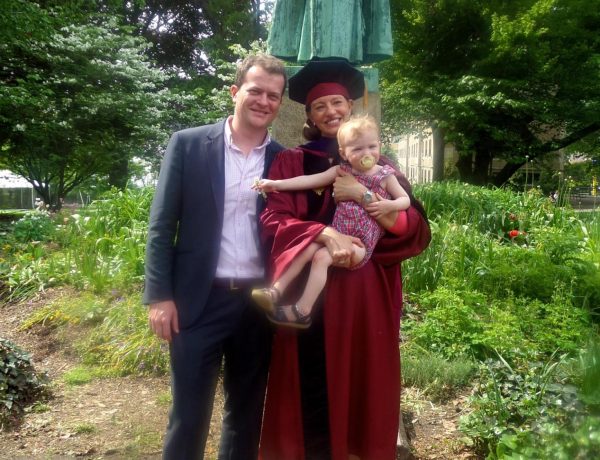
Another important member of the English department, Diane Masiello, decided to pursue a PhD after she began teaching college English at New York University. “I realized that was what I wanted to do for the rest of my life,” she said. “The way you kind of move toward that is you get your doctorate and so I moved over to English education and got my doctorate in basically teaching writing.”
Her research focus for her dissertation explored whether different types of technology affected the way students write, prompted by the introduction of computer technology when she began writing. Like many, managing the dissertation was one of the most difficult parts of her process. “You are completely alone, you have advisors but there’s no structure so I pretty much had to set up for myself that I would write two hours everyday when I worked and then on weekends I had to write for four hours a day,” Masiello said, “It’s the most efficient I’ve ever been in my life.”
Despite the difficulties she faced, Masiello shares that the journey was still extremely rewarding. “I know now that I can do anything I put my mind to and I can learn anything I put my mind to and teach it,” she said.
“I felt very accomplished and very proud of myself, and like that belief that I can do really anything,” Masiello said as a conclusion. “There were setbacks throughout the dissertation process and just to know that I could overcome all of them and still be successful was an amazing feeling.”
Assistant Principal of Academic Leadership Carson Dobrin knew she wanted to get a PhD from a young age. “It was always what I wanted to do, and then I took a psychology class in college and I loved it. That’s what got me interested in that particular field,” she said. “I always liked school, and so I think there’s a comfort in things you’re familiar with.”
She achieved her doctorate in neuroscience, which is “intimately connected to the way people learn,” she says. “That was a big piece of it, and also just sharing my love of science. In higher education everything starts to come together and you can see the more practical aspect of things.”
She had both of her children while she was getting her degree, which was difficult to balance. “It was tough, but just like anything, if you enjoy what you’re doing you make it work,” Dobrin said.
At the end of her journey, the reward was “wonderful,” she said. “Whenever you work really hard for something, it’s a big relief and you’re proud of yourself.”
The stories of these three doctors show that the path to a PhD is both very difficult and very rewarding, with their journeys framed by their hard work and love of learning. Their degrees mark a major milestone, which continues to shape their work in the classroom as well as inspiring their students and others considering higher education. “Know your why. Know why you want it,” said Diane Masiello to aspiring students. “Do you want it because it will get you somewhere in life, and will the amount of time you have to put into it and the expense you have to put into it be worth what you will make afterwards.”



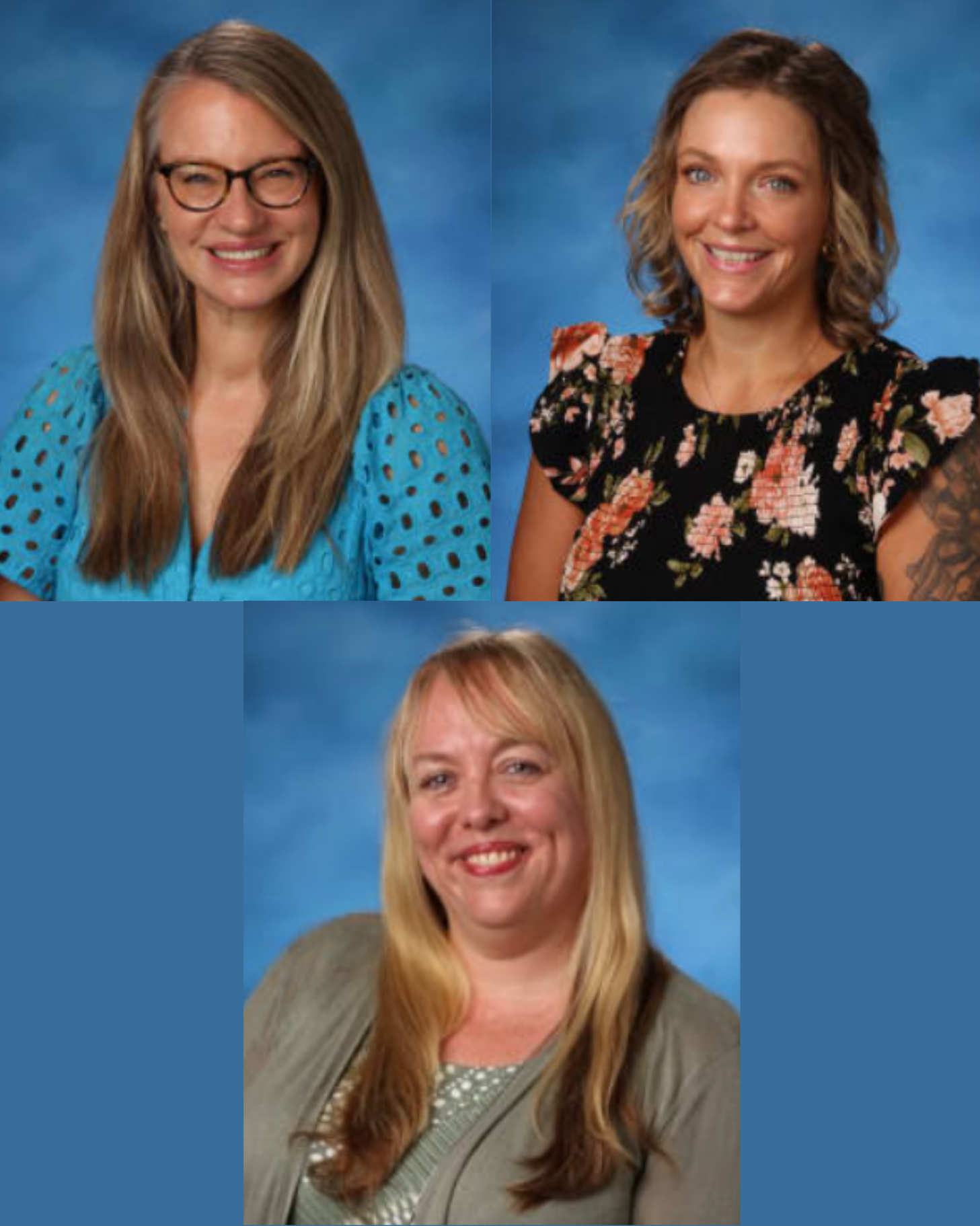
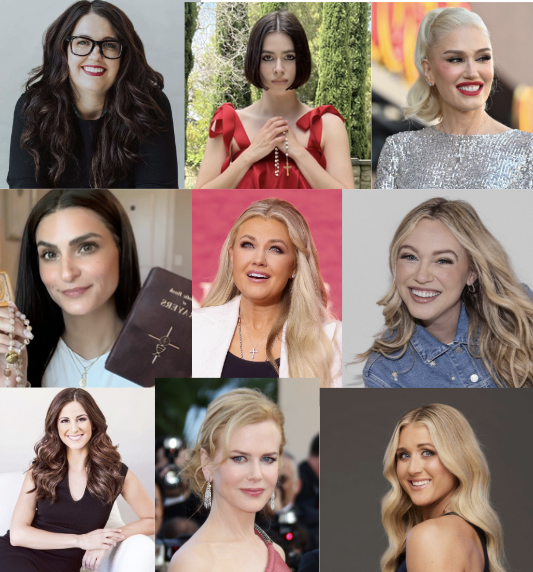
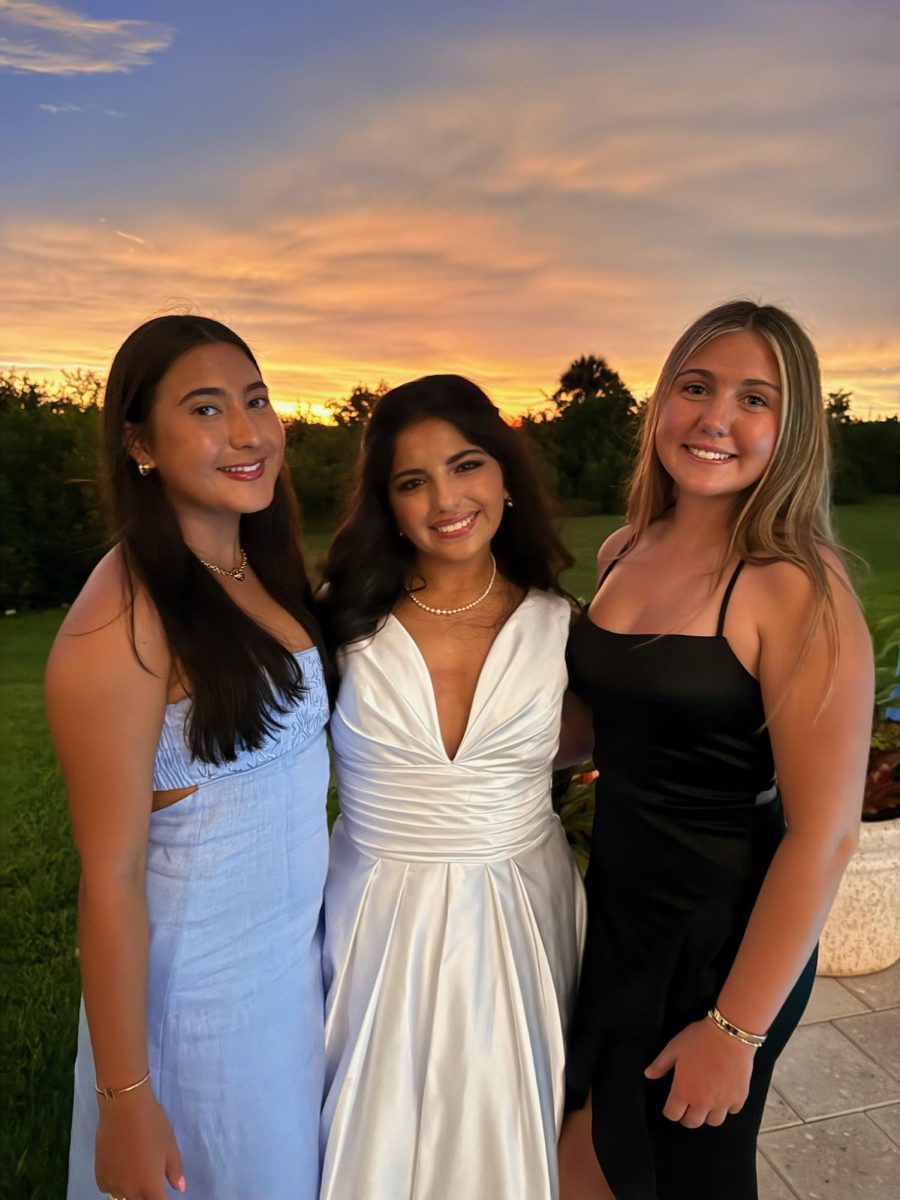
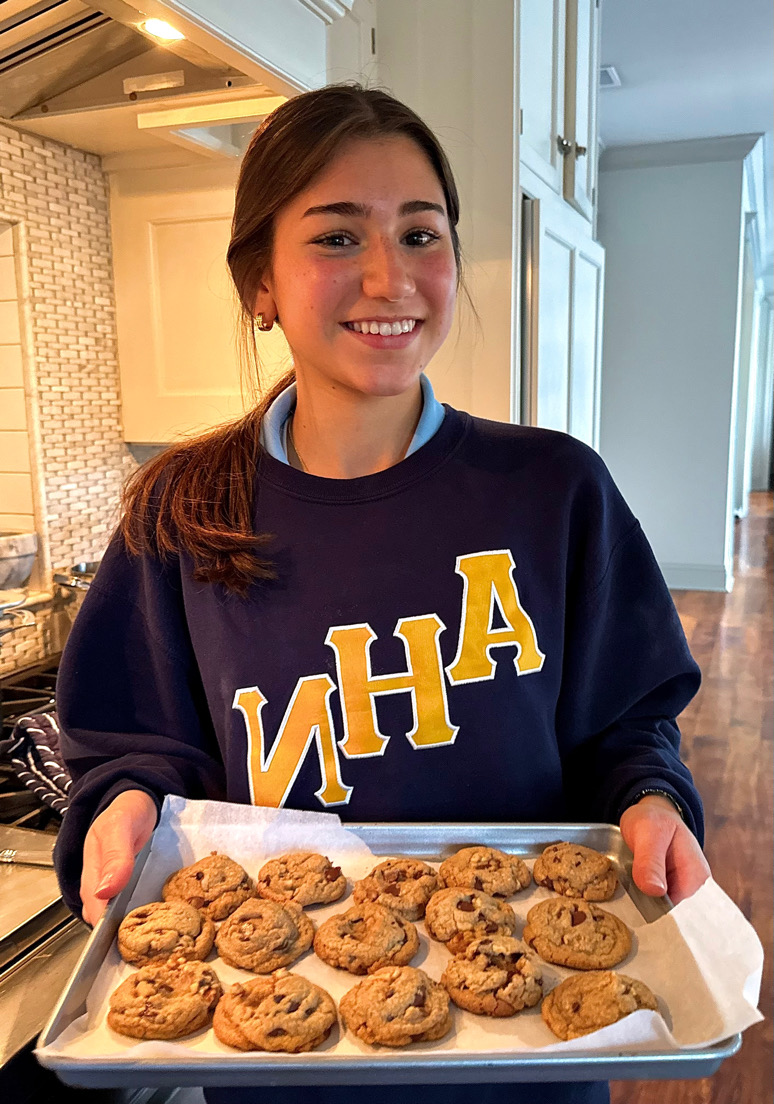
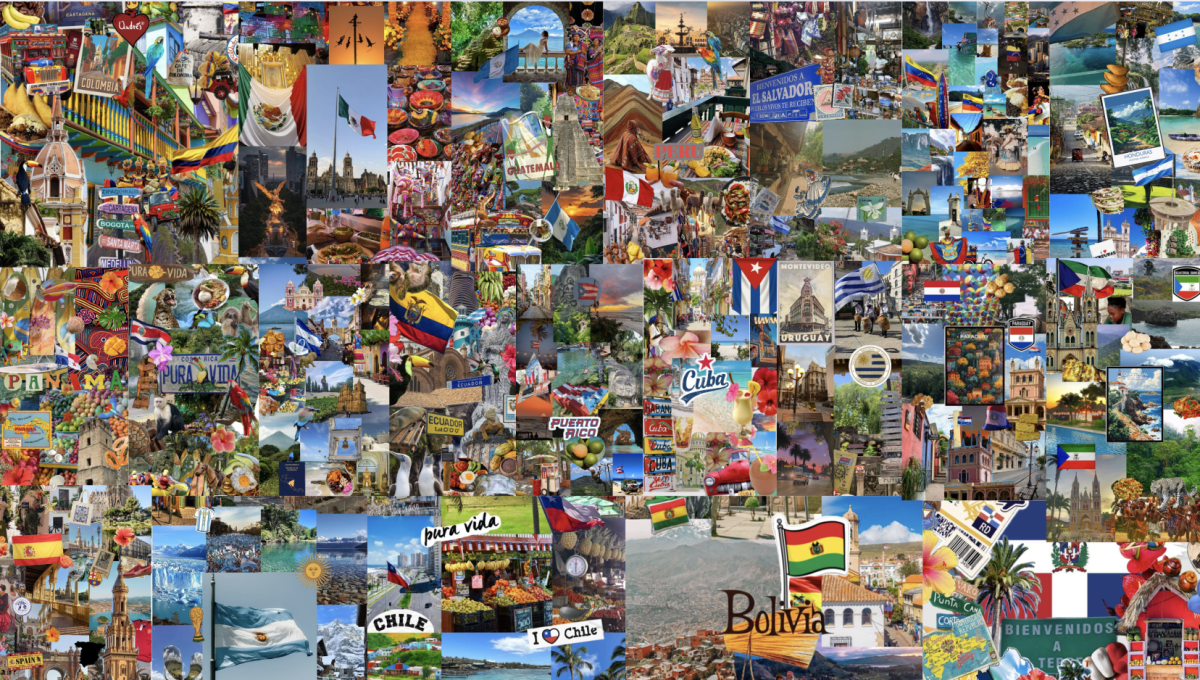
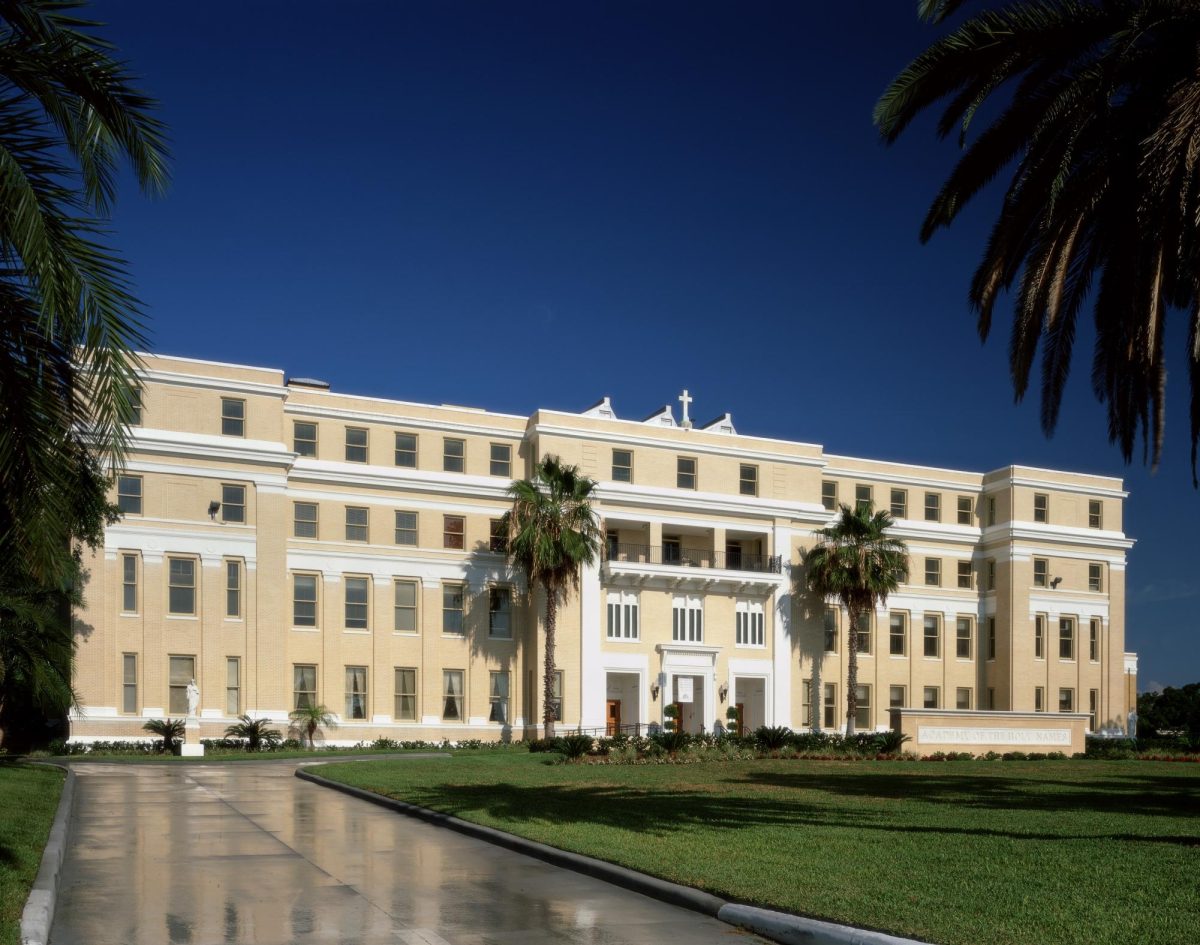

Patrick Alberts • Sep 30, 2025 at 3:22 pm
Great story and excellent writing! Dr. Alberts taught me everything I know about late medieval childbirth!
Camille King • Sep 25, 2025 at 12:27 pm
Riveting Read!